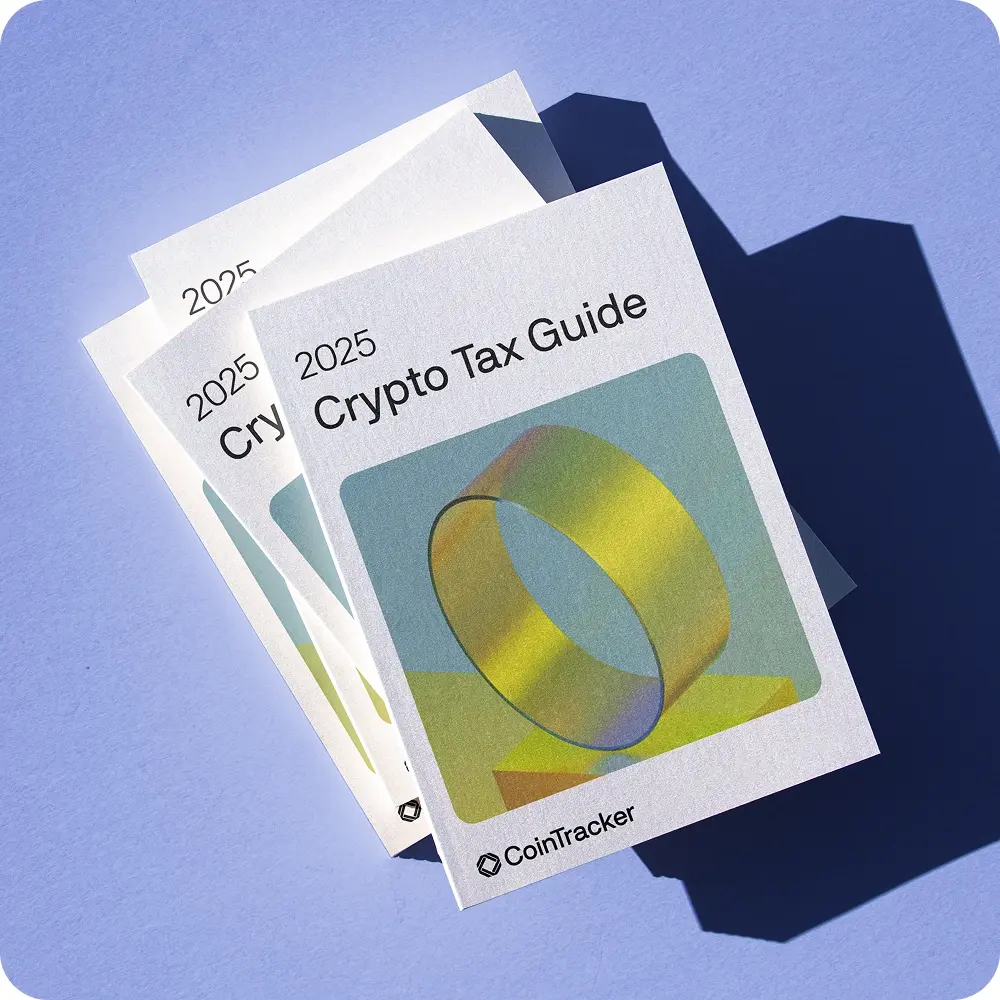The Rise of Crypto Debit Cards and Their Tax Challenges
Oct 30, 2020・2 min read
Cryptocurrency debit cards have recently exploded in popularity with the likes of BitPay, Blockcard, Crypto.com, Monolith, Wirex, and others. Today, Coinbase announced that they will be introducing their own Visa debit card allowing users to directly make purchases with any merchant that accepts Visa. This comes on the heels of PayPal announcing they will allow their users to spend crypto with all PayPal merchants starting in Q1 2021.

2025
Crypto Tax
Guide is here
CoinTracker's definitive guide to Bitcoin & crypto taxes provides everything you need to know to file your 2024 crypto taxes accurately.

Crypto tax complications
On its face, more utilities for cryptocurrency is great — especially if it plugs directly into an ecosystem of merchants that are used to accepting debit cards. Users can directly spend their cryptocurrency to buy goods and services wherever they like.
While these cards sound appealing, using them regularly will create a tax nightmare. Currently, the IRS treats cryptocurrency as property. As a result, every time someone spends cryptocurrency to buy something, that creates a taxable event where capital gains taxes must be calculated and paid. The IRS has specifically clarified that this is even applicable to micro-transactions worth less than a penny (although there are some early discussions about introducing a de minimis tax exemption for day-to-day transactions). Imagine: every time you buy a coffee with one of these cards, you take out your calculator to start computing cost basis, proceeds, and capital gains using FIFO, LIFO or HIFO accounting.
Example
Say you have one bitcoin (BTC) on Coinbase, currently valued at $13,500. You originally purchased this BTC a few years ago for $2,000. This week, you head to the grocery store to buy $270 of groceries using your Coinbase debit card. At the time you spend the BTC to purchase the groceries, you will incur a capital gain of $230 (($13,500 - $2,000) * ($270 / 13,500)).
The amount of taxes you have to pay on this gain depends on how long you kept the coin before spending it. If you hold the coin for 12 months or less before spending it, you incur short-term capital gains and are subject to ordinary income tax rates. If you hold the coin for more than 12 months before spending it, you incur long-term capital gains and are subject to lower rates (0%, 15% or 20% depending on your income).
Silver lining of crypto debit cards
On the bright side, some crypto debit card transactions could actually result in tax write-offs. Let’s say you actually purchased your BTC from before at $15,000 instead of $2,000. In this case, you would have a capital loss of $30 ($13,500 – $15,000) * ($270 / $13,500) which you can claim on your taxes subject to certain limitations.
Unfortunately, accurately calculating these losses is still extremely burdensome, especially for every single debit card transaction. The result is that for the average taxpayer, blindly using a crypto debit card will create an accounting nightmare and huge administrative burden come tax time. Luckily, tools like CoinTracker can help you automatically track all your crypto debit card transactions and their associated tax implications (including claiming the write-offs you are eligible for).
If you have any questions or comments about cryptocurrency debit cards, let us know on Twitter @CoinTracker.
CoinTracker integrates with 300+ cryptocurrency exchanges, 3,000+ blockchains, and makes crypto taxes and portfolio tracking simple.
Disclaimer: This post is informational only and is not intended as tax advice. For tax advice, please consult a tax professional.